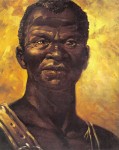What’s of Interest

Zumbi
In recognition of the Paris Declaration, which was signed on November 12, 1995, the United Nations instituted November 16 as the “International Day for Tolerance”. The date was chosen to pay tribute to the signing of UNESCO’s constitution in 1945. Our tribute also to the National Black Awareness Day*¹, observed on November 20, in memory of the brave Zumbi dos Palmares (1655-1695). Ethnic Ecumenism is also an essential factor when it comes to banishing intolerance from the planet.

Ecumenical Ideal
In “É urgente reeducar!” [It is urgent to reeducate!], a best-seller at the 21st International Book Biennial in São Paulo and a highlight of the 56th Porto Alegre Book Fair, both in 2010, in Brazil, I quoted an excerpt from my publication “Peace for the Millennium”, published for the Millennium World Peace Summit, held in 2000 at the UN headquarters in New York. There I argue that all the animosity that usually divides and segregates Human Beings into intolerant groups is opposed to the Ecumenical Ideal. In such case, it promotes intransigence and contributes towards maintaining this state of multiple tensions that can push the world in the direction of an indescribable conflict that no one in their right mind can wish for.
We see Unrestricted Ecumenism (among the most diverse branches of human knowledge) and Total Ecumenism (which covers the spiritual spheres that are still invisible to our poor physical senses) as maximum expressions of Love and Justice, the center of gravity of a healthy society. It is the natural state and the spontaneous wish of every creature when spiritually integrated with the Creator, or with the true sense of humanity, and the banner of those who, whether religious or not, toil to achieve a better coexistence on the planet. The Ecumenism proposed by the Religion of God imposes nothing on anyone. It rather issues an invitation to the natural understanding between civilized people.

Neutral Field

Alziro Zarur
When journalist, radio broadcaster and poet Alziro Zarur (1914-1979)*² outlined the creation of the LGW in his mind in 1926, he thought of it as a neutral field, an ecumenical environment in which everyone, united, could live in peace. In a talk I gave in the 1990s, I used a fictitious speaker to emphasize in the minds of those who honored me with their attention the value of respect and tolerance when it comes to conducting society well on a day-to-day basis:
What’s your religion? Of what interest is that?
Which political party do you support? Of what interest is that?
Oh, you’re black! Of what interest is that?
You’re colored! Of what interest is that?
You’re white! Of what interest is that?
You’re a human being! That’s what’s of interest!
We are human beings with the right to freedom of thought. If those who reason like us do not strengthen their ties, worse days will come for Mankind. Who’s got any security today? I return now to the important conclusion of Zarur, which is very apt for the days in which we are living: “There’s no security without God.”
__________________________________
*¹ National Black Awareness Day – In Brazil, this date of November 20 marks the anniversary of the death of Zumbi (the nephew of King Ganga Zumba), the hero of the Quilombo [slave settlement] of Palmares in the 17th century, located in the then Ward of Pernambuco, in the Barriga Hills, a region that today belongs to the municipality of União dos Palmares, in the Brazilian state of Alagoas. After resisting various invasions and betrayed he was surrounded by invading troops of the mercenary Domingos Jorge Velho, whom he had defeated on other occasions, and was killed. Zumbi became one of the greatest Brazilian representatives in the struggle of blacks against slavery in the country, which lasted until May 13, 1888, when Princess Isabel signed the Áurea Law. Both dates are celebrated in Brazil as a mark of the struggle against racial prejudice.
*² Alziro Zarur (1914-1979) — Born in the city of Rio de Janeiro, Brazil, on Christmas Day in 1914. He was a journalist, radio broadcaster, writer, poet, social activist, and a great preacher of God’s Word. He founded the Legion of Good Will (LGW) on January 1, 1950 (World Peace Day) and brilliantly presided over it until he passed over to the Spiritual World on October 21, 1979. Controversial and charismatic, in a popular and innovative way he preached the Gospel and Apocalypse of Jesus with much enthusiasm, but not in a literal way “for the letter kills” (The Second Epistle of Paul to the Corinthians 3:6), but in Spirit and Truth under the light of the New Commandment of the Ecumenical Christ. Zarur was also a great Proclaimer of the Unrestricted Ecumenism and of the Total Ecumenism in the world, a thesis that he had sustained since his teenage years when he launched the fundamentals of his Crusade of Brotherly Religions, thus anticipating inter-religious relationships.
The comments do not represent the views of this site and are the sole responsibility of their authors. It denied the inclusion of inappropriate materials that violate the moral, good customs, and/or the rights of others. Learn more at Frequently asked questions.